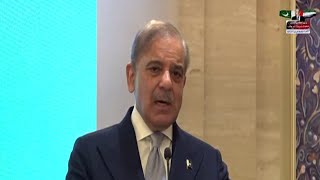Brazil's currency could strengthen back to mid-2015 levels or reach new record lows depending on the fate of President Dilma Rousseff, a Reuters poll showed on Thursday, as uncertainty mounted over a deepening political crisis.
The survey of 20 economists and strategists at leading financial firms in Brazil and abroad showed forecasts for the real at end-2016, currently at 3.65 per dollar, ranging from 2.50 to 5.00 per dollar, depending on whether or not Rousseff manages to survive an impeachment process this year.
The poll was conducted between March 14-17, with participants free to revisit their answers in light of new developments in the political crisis, such as the release of a taped conversation between Rousseff and Lula.
With Brazil's economy mired in its worst recession in decades, popular anger at Rousseff is mounting as an investigation into bribes and political kickbacks at state oil company Petrobras taints her inner circle.
Markets, looking to draw a line under a crisis that has now drawn millions of Brazilians to the streets in waves of historic protests, have rallied on hopes Rousseff will be impeached in coming months.
Forecasts for end-2016 in that scenario mostly ranged between 3.20 and 4.20 per dollar, with the median at 3.50 per dollar, last struck in August, and one outlier at a 2014 high of 2.50 per dollar.
Brazil's 5-year credit default swap, a benchmark of risk premium, would also drop to an August low in that scenario, to 320 basis points from a current 402, according to the median forecast in the survey.
If Rousseff survives impeachment, helped by her mentor and now cabinet minister Luiz Inacio Lula da Silva, the exchange rate could weaken to a record low of 4.25 per dollar, according to the median forecast in the survey.
Most estimates ranged between 4.00 and 4.50 per dollar, but three outliers projected it at or very close to 5.00 per dollar.
The 5-year CDS, boosted by the lingering political deadlock, would reach 520 basis points, according to the median forecast.
The dispersion of forecasts even in a relatively small sample of estimates highlights the extreme uncertainty caused by the political crisis and the deep recession.
Just two weeks ago, another Reuters poll projected the exchange rate at 4.25 per dollar in 12 months.
About two-thirds of respondents, 13, expect Rousseff to be removed from the presidency this year, while the rest say she is likely to stay. The proportion is similar to the chances calculated by research firms such as Eurasia and Arko Advice for Rousseff's impeachment, currently at 60-65 percent.
Despite the volatility, the central bank should start to reduce its market intervention, most poll respondents said.
Eleven of the 17 who responded to an extra question said the bank should start to reduce the stock of outstanding currency swaps over the next month, rolling over between 30 to 97 percent of the contracts it sold over the past years in an attempt to stabilise the market and moderate currency losses.
The central bank later announced it would indeed reduce the intensity of its daily currency swap rollovers.
Economists agreed to participate in the survey if their individual responses remained confidential. Fifteen of the participants were based in Brazil, and others were in Europe and in the United States.
BR100
7,841
Increased By
30.9 (0.4%)
BR30
25,465
Increased By
315.4 (1.25%)
KSE100
75,114
Increased By
157.8 (0.21%)
KSE30
24,114
Increased By
30.8 (0.13%)






















Comments
Comments are closed.